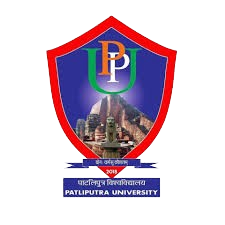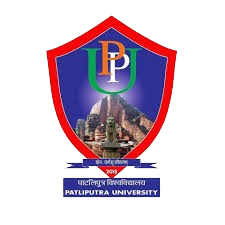Institutional Development Plan for Islamia Teacher's Training(B.Ed) College
The Institutional Development Plan (IDP) for Islamia Teacher's Training(B.Ed) College outlines our commitment to growth, enhancement of academic standards, infrastructure development, and the overall improvement of the teaching-learning environment. This plan aims to align our vision with the evolving needs of the education sector, ensuring that we consistently produce well-rounded, competent, and ethical educators. Below is a comprehensive roadmap for the next phase of institutional development:
- 1. Academic Excellence and Curriculum Development:
- Continuous Review and Update of Curriculum: Ensure that the curriculum aligns with national and international educational standards. Regular updates based on industry demands, feedback from alumni, and emerging trends in education.
- Introduction of Specialized Courses: Introduce specialized modules like educational technology, inclusive education, leadership in education, and guidance counseling to cater to modern teaching requirements.
- Integration of Technology: Incorporate modern teaching tools and educational technologies into the curriculum to prepare students for the digital classroom environment. - 2. Faculty Development:
-Ongoing Professional Development: Provide continuous training opportunities for faculty members to enhance teaching methods, update subject knowledge, and incorporate the latest pedagogical approaches.
- Research and Publications: Encourage faculty to engage in research activities, attend conferences, and publish papers in renowned educational journals.
- Workshops and Seminars: Organize regular workshops, guest lectures, and seminars with experts from the field of education to ensure faculty and students remain at the cutting edge of educational advancements. -
3. Infrastructure Enhancement :
- Expansion of Learning Spaces: Develop additional classrooms, seminar halls, and multipurpose rooms to accommodate growing student numbers and facilitate better learning experiences.
- Digital Infrastructure: Enhance digital infrastructure with more smart classrooms, interactive boards, e-libraries, and online resources to promote an integrated learning environment.
- Practical Teaching Facilities: Expand and upgrade practice teaching rooms, laboratories, and student resource centers to provide hands-on learning experiences and foster creativity. - 4. Student Support and Development :
- Counseling and Career Services: Strengthen student support services with career counseling, mental health support, and academic guidance to assist students in achieving their personal and professional goals.
- Internships and Field Experiences: Expand partnerships with schools to offer more comprehensive and diverse fieldwork experiences for students. This will ensure students gain real-world teaching experience across different educational settings.
- Extracurricular Activities: Increase opportunities for students to engage in extracurricular and co-curricular activities like sports, cultural events, workshops, and leadership training to foster holistic development. - 5. Research and Innovation :
- Promoting Educational Research: Establish a dedicated research wing that encourages students and faculty to conduct educational research projects and contribute to innovative practices in teaching.
- Collaborations with Educational Institutes: Collaborate with other academic institutions, schools, and research organizations to stay updated on the latest teaching practices and innovations.
- Incentivize Student Research: Provide platforms for students to present their research, attend academic conferences, and publish papers in educational journals. - 6. Community Engagement and Social Responsibility :
- Community Outreach Programs: Launch initiatives that promote social responsibility, including community development projects, awareness campaigns, and support for marginalized communities through education.
- Teacher Education Awareness Campaigns: Increase awareness about the importance of quality education by organizing outreach programs in rural and underserved areas, encouraging aspiring teachers to join the profession. - 7. Quality Assurance and Accreditation :
- Enhance Accreditation Standards: Focus on obtaining accreditations from various recognized bodies and continuously improve internal processes to meet and exceed national and international standards.
- Regular Feedback Mechanisms: Implement regular feedback from students, parents, and alumni to assess the effectiveness of teaching methods, infrastructure, and administrative processes. Act on this feedback to improve educational delivery.
- Performance Monitoring: Establish mechanisms for continuous monitoring and evaluation of both student and faculty performance to maintain and enhance the institution’s standards. - 8. Sustainability and Environmental Initiatives :
- Green Campus Initiatives: Promote sustainable practices within the college by using energy-efficient technologies, reducing waste, and maintaining green spaces on campus.
- Awareness Programs: Conduct sustainability awareness programs for students and staff, focusing on reducing carbon footprints, conservation efforts, and environmental responsibility. - 9. Partnerships and Collaborations :
- Industry Partnerships: Build stronger ties with educational organizations, government bodies, and private institutions to improve placement opportunities and internships for students.
- International Collaboration: Explore opportunities for student exchange programs, collaborative research, and partnerships with international institutions to broaden students' global perspectives and exposure. - 10. Alumni Engagement :
- Strengthening Alumni Network: Create an active and engaged alumni network that facilitates mentorship, career opportunities, and networking for current students.
- Alumni Contributions: Encourage alumni to contribute to the institution through guest lectures, donations, or providing real-world insights into educational practices and trends. - Conclusion: The Institutional Development Plan for Islamia Teacher's Training(B.Ed) College is focused on providing a well-rounded educational experience for future educators, equipping them with the knowledge, skills, and ethical values required to succeed in the classroom and beyond. By focusing on academic excellence, infrastructure development, faculty enhancement, and student-centered initiatives, Islamia Teacher's Training(B.Ed) College aims to continue its legacy as a leading institution for teacher education and to meet the growing demands of the education sector.







